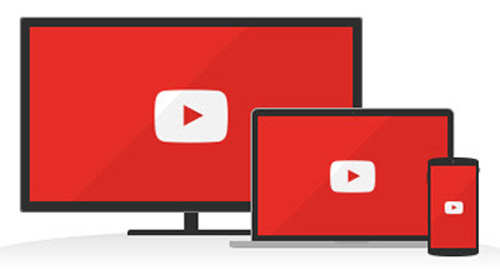Google in ‘free ride’ to annual KRW 6 trillion communication network
[ Kang Eun Seong esther@ ] | 2017-10-23 11:12:42
Issue analysis, Google to torture ICT Korea, Should we leave it in this way?
[Digital Times, Kang Eun-song] # A company worker A watches most popular entertainments programs as `VoD` service rather than `Home.` Since he has paid for the latest VoD service, he searches Google YouTube every time and watches for free. Naver and Daum (Kakao) block most of domestic entertainment program VoD for copyright protection, and foreign video platforms are severely disconnected during video playback. In the case of Google You tube, the Korean copyright law is not properly maintained, so the VoD is the search result of the VoD immediately after the broadcast, and the image quality is also HD 720p.
Google is eclipsing Korea`s ICT competitiveness. Google is known to raise sales of several trillion won each year in Korea. However, most of the revenue-generating Internet services are used as `free` services.
According to the Internet industry, sales of Google Korea are estimated at KRW 3 trillion. According to the `Korea Wireless Internet Industry Status of 2016` published by the Korea Wireless Internet Industry Association in the first half of the year, the sales amount of Google Play Korea in the previous year`s Google application market was KRW 4.46 trillion. Google`s app sales revenue is divided between developers and Google 7 to 3, so if we calculate 30% of the revenue from Google Korea, it is more than 1.48 trillion won. YouTube and search advertising fees, which have increased rapidly over the past several years, are estimated to exceed this size. Although Google does not disclose its revenue and profits, it estimates that its revenue is close to KRW 3 trillion.
Meanwhile, to maintain the quality of `wired and wireless internet`, which is the service path of Google, capital investment (CAPEX) invested by domestic network operators (mobile carriers) is scheduled to be KRW 5.85 trillion only this year. At present, more than 50% is in execution. According to NH Investment & Securities, since 2011, when 4G LTE has started to be built, the average annual capex of the three mobile carriers is KRW 6.82 trillion. The problem is that Google is making a `free ride` to high-quality Internet networks that spend 6 trillion won each year.
Market share of Google is overwhelmingly high in video streaming, which accounts for the largest portion of the actual Internet traffic. As of May, Wise`s apps accounted for 73% of the total mobile video market in Korea, with the total amount of time spent on domestic mobile video and its market share.
Africa TV accounted for 1.9 billion minutes (5.3 %), Naver TV accounted for 0.8 billion minutes (2.7 %), and other video platforms accounted for 5 %. At present, there is no objective domestic traffic share statistics of foreign content providers (CP). Based on the ‘use time share’ measured by Wise`s app, it is estimated that YouTube has 13.7 times more traffic than native CP Africa TV and 27 times more traffic than Naver TV.
In this case, however, there is no current network for Google Korea. The native CP is paying billions of KRW per year to provide seamless high-definition (720p) service.
In case of Naver, the largest portal in Korea, the cost is estimated at KRW 20 billion. It is estimated that Google YouTube will cost about KRW 200 billion per year if it pays for the same standard. But Google Korea is not doing it at all. The three communicating companies are transmitting the Google content through the `cache server`, but they do not even pay for using the cache server.
However, Google Korea is not doing it at all. The three mobile carriers are transmitting the Google content through the `cache server`, but they do not even pay for using the cache server.
A senior official at a Korean mobile carrier said, "It was at a time when the traffic of Google (YouTube) was so explosive that it took a considerable load on the network in 2011, so we installed the cache server at no cost and after that "He said," We have been asking for future costs, but we have not paid any fees in any country.
On the other hand, Google is pressuring free use by disclosing "speed of traffic" to telecom companies that want to use the network.
It is to disclose the transmission speed of Google YouTube by each carrier by creating a page called `ISP (Internet service provider, referring to carrier) access speed`.
In the case of mobile carriers, it cannot withstand the fact that the speed is lower than that of its competitors.
Even if the speed of access is not enough for publicity, Google will stop the cache server installed in Korea and bypass the cache server installed in Japan or Hong Kong.
In this case, Korean mobile carriers need to use expensive and inferior international lines, and users are faced with slowing down all other Internet services with huge traffic from Google. In the end, the carriers are forced to look at Google`s free ride to Google`s stomach on the so called ‘user’ pawn.
By Kang Eun Seong esther@



